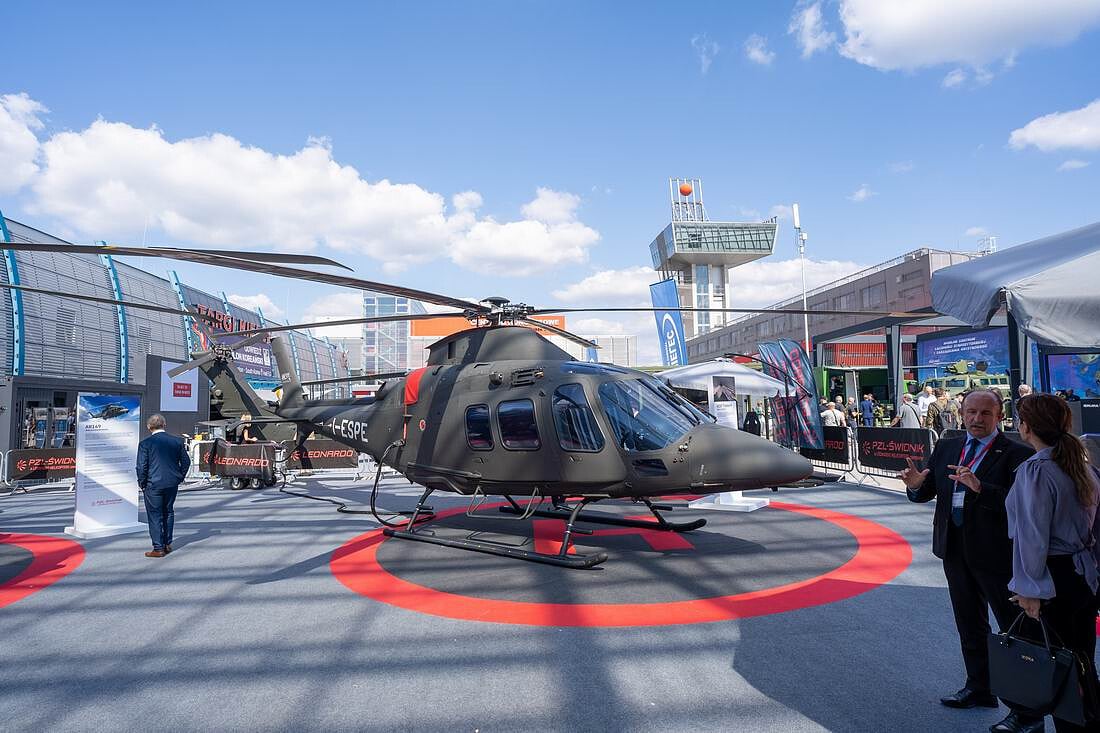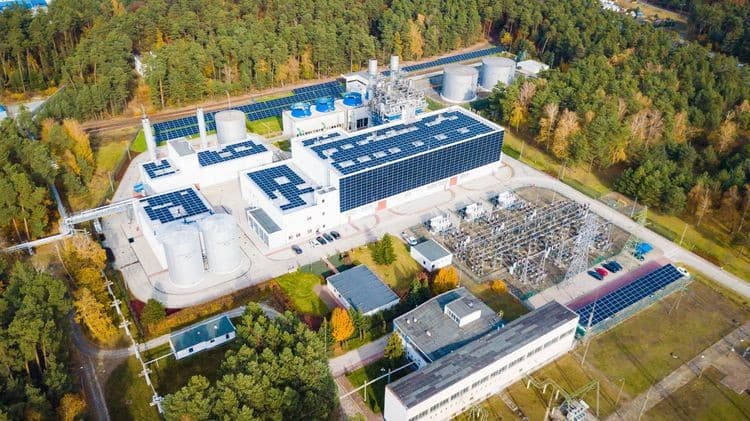Kielce defense fair attracts global big shots
Andrzej Duda, for his last time as president, took part in the International Defence Industry Exhibition (MSPO) in Kielce in early September, one of the most important such events in Europe, with 769 exhibitors from 34 countries gathered in the capital of the Świętokrzyskie Voivodeship south of Warsaw.
“This is a very important event for Poland from an economic point of view. Very important for Kielce from an economic and prestige point of view. It is also a very important event for us and our part of Europe. I may say it in a high-flown way, but why not, it is very important for the world from a security point of view,” Duda said.
Duda pointed out that the foundation for maintaining peace in the world is balance of power. “And for this reason, all NATO members should provide sufficient funds for armaments. This is particularly important in the context of Russia’s criminal activity in Ukraine,” he said.
Speaker of the Sejm Szymon Hołownia said the Kielce fair was extremely important from the point of view of the current geopolitical situation. “It will help increase spending on armaments in Poland,” he said, adding that key contracts had been signed for up to 700 million zlotys (about 165 million euros) at the event. “And the Polish government, via the Armaments Agency, will sign contracts worth almost 2 billion zlotys,” said Deputy Prime Minister and Minister of National Defence, Władysław Kosiniak-Kamysz, adding that he wants to buy as much Polish equipment as possible, but that there are machines – such as the F35 fighter plane – which we will not buy in Poland.
“We will produce ammunition in Poland, we will ensure that the largest possible part of the expenditure goes to the Polish arms industry. Our ambitious goal is 50-50. Fifty for Polish private and public industry and fifty for foreign, state-of-the-art equipment such as Apache, which we recently purchased,” he explained.
Contracts signed at MSPO
The Armament Agency signed two important contracts during the event. Following agreements signed between US forms and arms agency PGZ, there were further million-dollar contracts aimed at strengthening NATO’s eastern flank.
The first concerned the delivery of radar control systems for airports. The Spanish company Indra Sistemas will supply the PGZ with 15 systems, which are awaited by soldiers serving military airports. The Spaniards will start implementing the contract in 2025, and have until 2031 to complete it. The value of the contract is 1.1 billion zlotys.
WB Electronics signed an executive agreement for the delivery of FlyEye Miniature Unmanned Aerial Systems. The value of the agreement is 24 million zlotys. Deliveries of unmanned aerial vehicles with the latest version of the system will be completed by the end of 2026.
Deputy Minister of National Defence Paweł Bejda pointed out the significance of the contracted equipment. “I am conducting numerous talks here with delegations from various countries and I emphasize that Poland must arm itself, and these two agreements, among others, will allow us to increase the security of Poles,” he said.
Advanced Protection Systems (APS), a Polish anti-drone expert, is introducing a new tool for neutralizing small flying objects. The hunter drone is part of the anti-drone systems (SKYctrl), in the design and production of which the Gdynia-based APS company specializes. The company creates radars and systems based on them that effectively detect, track and neutralize unmanned aerial vehicles.
“When the war in Ukraine broke out, we were ready to provide effective anti-drone tools,” says Maciej Klemm, co-founder and CEO of APS. “The huge activity of combat drones in this war was an impulse for us to develop and search for new solutions, the effect of which is, among others, the hunter drone.”
This year, over 30 companies from Australia appeared at the International Defence Industry Exhibition. “Unfortunately, from a strategic point of view, the situation around the world is becoming increasingly dangerous, our task is to help protect – Australia, but also other countries,” says Gen. David Coghlan, from Team Defence Australia. “The Polish defence budget is growing at a rapid pace. Poland is an attractive partner for the Australian defence industry to cooperate with the Polish industry and the Polish army,” says Paul Fisher, a representative of an Australian defence company.







